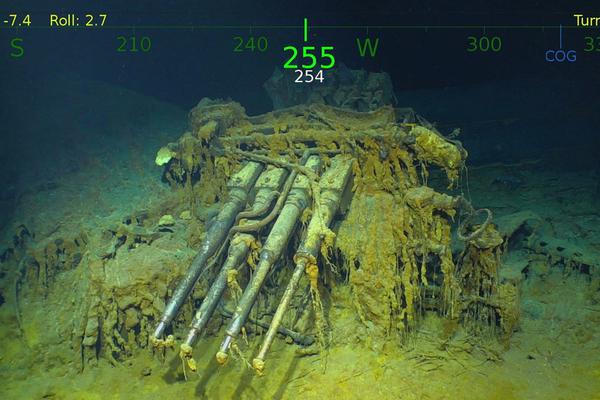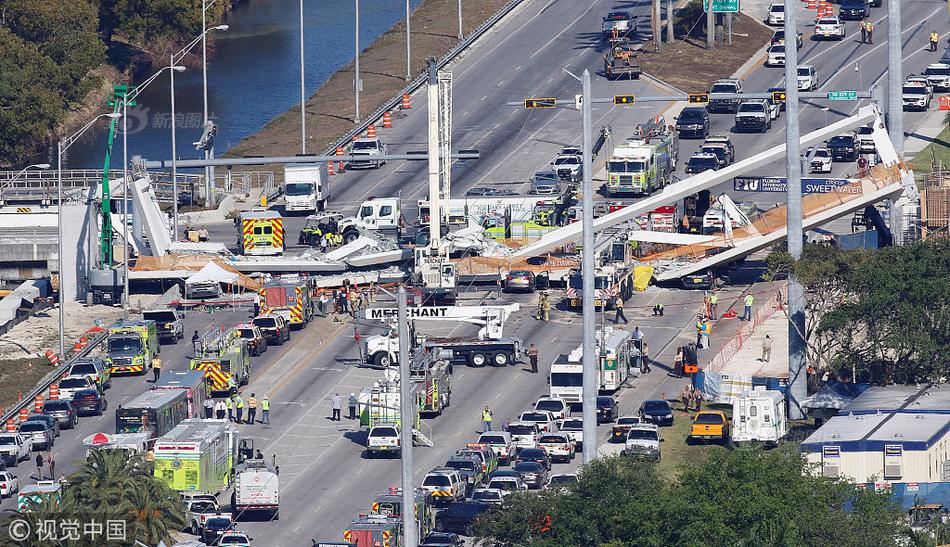
1. The failure of the temperature sensor or temperature regulator; the reason for the buzzing of the car at low speed or variable speed is that the gap between the piston and the cylinder wall is too large; the buzzing at high speed is caused by the sound Caused by vibration. The temperature sensor or temperature regulator has failed.
2. Most of the reasons why the car buzzes at low speed or when changing gears are caused by the excessive gap between the piston and the cylinder wall. During the installation process, when the installation configuration is too tight and there is abnormal wear, there will be a buzzing phenomenon. Another reason is that the engine explodes on the cylinder, which may be caused by early ignition angle or more carbon accumulation in the cylinder.
3. Other reasons: gearbox problems: accelerationThe buzzing sound is not always caused by the engine, and it may also be caused by friction due to the wear of the gearbox bearing and the reduction of lubricant.
4. The car will make a buzzing sound when driving, and speed is the cause of this situation. Among them, the common reasons are as follows: the wheel bearing of the car is worn or loose. The tire was partially worn or eaten. Wheel bearings are one of the most important parts of the vehicle, which can make the wheels run freely.

1. The reason for the buzzing of low-speed or variable-speed cars is the piston and cylinder wall The gap is too big. During the installation process, when the assembly is too tight and there is abnormal wear, there will be buzzing. Another reason is that the engine knocks on the cylinder. The engine knocks on the cylinder in the initial stage, which may be caused by the early ignition angle or the accumulation of more carbon in the cylinder.
2. Most of the reasons why the car buzzes at low speed or when changing gears are caused by the excessive gap between the piston and the cylinder wall. During the installation process, when the installation configuration is too tight and there is abnormal wear, there will be a buzzing phenomenon. Another oneThe reason is that the engine bursts on the cylinder, which may be caused by the early ignition angle or more carbon accumulation in the cylinder.
3. The reason for the engine buzzing: the engine buzzing at idle: it may be the sound made by the work of the electronic fan for water tank heat dissipation, but this sound is indirect. If the buzzing has been there, it may be a malfunction of the temperature sensor or the temperature regulator.
4. The abnormal sound of the bearing is a regular buzzing sound, such as the engine tightening wheel, idler, etc. At this time, the relevant parts need to be replaced. Only by figuring out the real reason for the loud engine noise can we "put the right medicine" and avoid the waste of oil and the increase in vehicle maintenance costs caused by blindly replacing the oil.
5. The temperature sensor or temperature regulator fails;The reason for the buzzing of the car at low speed or in variable speed is caused by the excessive gap between the piston and the cylinder wall; the buzzing in the state of high-speed operation is caused by sound resonance. The temperature sensor or temperature regulator is faulty.
6. What is the reason for the loud buzzing sound of the engine? The temperature sensor or temperature regulator fails; the reason why the car buzzes at low speed or in variable speed is that the gap between the piston and the cylinder wall is too large; the buzzing at high speed is caused by sound resonance. The temperature sensor or temperature regulator has failed.
Most of the reasons for the buzzing sound when the car is low or changing gears are caused by the excessive gap between the piston and the cylinder wall. During the installation process, when the installation configuration is too tight and there is abnormal wear, there will be a buzzing phenomenon.Another reason is that the engine explodes on the cylinder, which may be caused by early ignition angle or more carbon accumulation in the cylinder.
The reason for the loud buzzing of the engine: temperature sensor failure, excessive gap between the piston and cylinder wall, and improper oil selection. Temperature sensor failure Engine buzzing when idling: When the car is idling normally, the buzzing may be caused by the work of the electronic fan in the water tank, but this noise is indirect.
The failure of the temperature sensor or temperature regulator; the reason for the buzzing of the car at low speed or variable speed is caused by the excessive gap between the piston and the cylinder wall; the buzzing at high speed is caused by sound resonance. The temperature sensor or temperature regulator is faulty.
The reason for the buzzing of low-speed or variable-speed cars is that the gap between the piston and the cylinder wall is too large. During the installation process, when the assembly is too tight and there is abnormal wear, there will be buzzing. Another reason is that the engine knocks on the cylinder. The engine knocks on the cylinder in the initial stage, which may be caused by the early ignition angle or the accumulation of more carbon in the cylinder.
Most of the reasons why the car makes buzz at low speed or when changing gears are caused by the excessive gap between the piston and the cylinder wall. During the installation process, when the installation configuration is too tight and there is abnormal wear, there will be a buzzing phenomenon. Another reason is that the engine explodes on the cylinder, which may be caused by early ignition angle or more carbon accumulation in the cylinder.
The engine is suitable for bothPower generator, which can also refer to the whole machine including the power unit (such as gasoline engine, aircraft engine).
The foot glue is aging or loose; improper oil use; insufficient engine cylinder; carbon and sludge will increase the operating resistance of the engine, etc., which will make the engine louder. Common reasons and solutions for loud engine noise: aging or looseness of the foot glue. Foot glue is a rubber block between the engine and the frame.
There are three main reasons why the sound of the car engine becomes louder: the noise white sound generated by acceleration. To judge whether these noises are normal, the best way is to compare the difference between new and old noises whether you have heard similar noises before.If the noise of the whole vehicle is too loud, there may be a problem. Belt noise.
What are the reasons why the sound of the car engine becomes louder? The screw of the lower guard plate of the engine is loose. When we fixed him, the strange sound disappeared! The plastic parts in the engine compartment are loose. For example, the engine cover, intake pipe, etc., just tighten it. The engine belt makes a strange sound.
The reasons are as follows: it is not lubricated enough when the cold car starts, and the hydraulic column and mechanical rocker arm fail to work properly, resulting in a rattling sound. The condition of the oil is not right: if the viscosity of the oil is too high or too low, the engine will make noise. The belt is not elastic enough: the engine makes a squeaky sound at work.
The engine is very noisy during cold start. When the car is parked for a long time and started, the engine will vibrate violently and then make a "da-da" sound.
The reason for the loud noise of the car engine: the first reason: the foot glue is aging or loose; the foot glue is the rubber block cushioned between the engine and the frame. Its function is to reduce the vibration and buffering of the engine during work, and to fix the engine.
1. The reason why low-speed or variable-speed cars make buzz is that the gap between the piston and the cylinder wall is too large. During the installation process, when the assembly is too tight and there is abnormal wear, there will be buzzing. Another reason is that the engine knocks on the cylinder. The engine knocks on the cylinder in the initial stage, which may be caused by the early ignition angle or the accumulation of more carbon in the cylinder.
2. Most of the reasons why the car buzzes at low speed or when changing gears are caused by the excessive gap between the piston and the cylinder wall.During the installation process, when the installation configuration is too tight and there is abnormal wear, there will be a buzzing phenomenon. Another reason is that the engine explodes on the cylinder, which may be caused by early ignition angle or more carbon accumulation in the cylinder.
3. The reason for the engine buzzing: the engine buzzing at idle: it may be the sound made by the work of the electronic fan for water tank heat dissipation, but this sound is indirect. If the buzzing has been there, it may be a malfunction of the temperature sensor or the temperature regulator.
4. The abnormal sound of the bearing is a regular buzzing sound, such as the engine tightening wheel, idler, etc. At this time, the relevant parts need to be replaced. Only by figuring out the real reason for the loud engine noise can we "put the right medicine" and avoid the waste of oil and the increase in vehicle maintenance costs caused by blindly replacing the oil.
5. The failure of the temperature sensor or temperature regulator; the reason for the buzzing of the car at low speed or variable speed is caused by the excessive gap between the piston and the cylinder wall; the buzzing in the state of high-speed operation is caused by sound resonance. The temperature sensor or temperature regulator is faulty.
Hearthstone arena deck Builder-APP, download it now, new users will receive a novice gift pack.
1. The failure of the temperature sensor or temperature regulator; the reason for the buzzing of the car at low speed or variable speed is that the gap between the piston and the cylinder wall is too large; the buzzing at high speed is caused by the sound Caused by vibration. The temperature sensor or temperature regulator has failed.
2. Most of the reasons why the car buzzes at low speed or when changing gears are caused by the excessive gap between the piston and the cylinder wall. During the installation process, when the installation configuration is too tight and there is abnormal wear, there will be a buzzing phenomenon. Another reason is that the engine explodes on the cylinder, which may be caused by early ignition angle or more carbon accumulation in the cylinder.
3. Other reasons: gearbox problems: accelerationThe buzzing sound is not always caused by the engine, and it may also be caused by friction due to the wear of the gearbox bearing and the reduction of lubricant.
4. The car will make a buzzing sound when driving, and speed is the cause of this situation. Among them, the common reasons are as follows: the wheel bearing of the car is worn or loose. The tire was partially worn or eaten. Wheel bearings are one of the most important parts of the vehicle, which can make the wheels run freely.

1. The reason for the buzzing of low-speed or variable-speed cars is the piston and cylinder wall The gap is too big. During the installation process, when the assembly is too tight and there is abnormal wear, there will be buzzing. Another reason is that the engine knocks on the cylinder. The engine knocks on the cylinder in the initial stage, which may be caused by the early ignition angle or the accumulation of more carbon in the cylinder.
2. Most of the reasons why the car buzzes at low speed or when changing gears are caused by the excessive gap between the piston and the cylinder wall. During the installation process, when the installation configuration is too tight and there is abnormal wear, there will be a buzzing phenomenon. Another oneThe reason is that the engine bursts on the cylinder, which may be caused by the early ignition angle or more carbon accumulation in the cylinder.
3. The reason for the engine buzzing: the engine buzzing at idle: it may be the sound made by the work of the electronic fan for water tank heat dissipation, but this sound is indirect. If the buzzing has been there, it may be a malfunction of the temperature sensor or the temperature regulator.
4. The abnormal sound of the bearing is a regular buzzing sound, such as the engine tightening wheel, idler, etc. At this time, the relevant parts need to be replaced. Only by figuring out the real reason for the loud engine noise can we "put the right medicine" and avoid the waste of oil and the increase in vehicle maintenance costs caused by blindly replacing the oil.
5. The temperature sensor or temperature regulator fails;The reason for the buzzing of the car at low speed or in variable speed is caused by the excessive gap between the piston and the cylinder wall; the buzzing in the state of high-speed operation is caused by sound resonance. The temperature sensor or temperature regulator is faulty.
6. What is the reason for the loud buzzing sound of the engine? The temperature sensor or temperature regulator fails; the reason why the car buzzes at low speed or in variable speed is that the gap between the piston and the cylinder wall is too large; the buzzing at high speed is caused by sound resonance. The temperature sensor or temperature regulator has failed.
Most of the reasons for the buzzing sound when the car is low or changing gears are caused by the excessive gap between the piston and the cylinder wall. During the installation process, when the installation configuration is too tight and there is abnormal wear, there will be a buzzing phenomenon.Another reason is that the engine explodes on the cylinder, which may be caused by early ignition angle or more carbon accumulation in the cylinder.
The reason for the loud buzzing of the engine: temperature sensor failure, excessive gap between the piston and cylinder wall, and improper oil selection. Temperature sensor failure Engine buzzing when idling: When the car is idling normally, the buzzing may be caused by the work of the electronic fan in the water tank, but this noise is indirect.
The failure of the temperature sensor or temperature regulator; the reason for the buzzing of the car at low speed or variable speed is caused by the excessive gap between the piston and the cylinder wall; the buzzing at high speed is caused by sound resonance. The temperature sensor or temperature regulator is faulty.
The reason for the buzzing of low-speed or variable-speed cars is that the gap between the piston and the cylinder wall is too large. During the installation process, when the assembly is too tight and there is abnormal wear, there will be buzzing. Another reason is that the engine knocks on the cylinder. The engine knocks on the cylinder in the initial stage, which may be caused by the early ignition angle or the accumulation of more carbon in the cylinder.
Most of the reasons why the car makes buzz at low speed or when changing gears are caused by the excessive gap between the piston and the cylinder wall. During the installation process, when the installation configuration is too tight and there is abnormal wear, there will be a buzzing phenomenon. Another reason is that the engine explodes on the cylinder, which may be caused by early ignition angle or more carbon accumulation in the cylinder.
The engine is suitable for bothPower generator, which can also refer to the whole machine including the power unit (such as gasoline engine, aircraft engine).
The foot glue is aging or loose; improper oil use; insufficient engine cylinder; carbon and sludge will increase the operating resistance of the engine, etc., which will make the engine louder. Common reasons and solutions for loud engine noise: aging or looseness of the foot glue. Foot glue is a rubber block between the engine and the frame.
There are three main reasons why the sound of the car engine becomes louder: the noise white sound generated by acceleration. To judge whether these noises are normal, the best way is to compare the difference between new and old noises whether you have heard similar noises before.If the noise of the whole vehicle is too loud, there may be a problem. Belt noise.
What are the reasons why the sound of the car engine becomes louder? The screw of the lower guard plate of the engine is loose. When we fixed him, the strange sound disappeared! The plastic parts in the engine compartment are loose. For example, the engine cover, intake pipe, etc., just tighten it. The engine belt makes a strange sound.
The reasons are as follows: it is not lubricated enough when the cold car starts, and the hydraulic column and mechanical rocker arm fail to work properly, resulting in a rattling sound. The condition of the oil is not right: if the viscosity of the oil is too high or too low, the engine will make noise. The belt is not elastic enough: the engine makes a squeaky sound at work.
The engine is very noisy during cold start. When the car is parked for a long time and started, the engine will vibrate violently and then make a "da-da" sound.
The reason for the loud noise of the car engine: the first reason: the foot glue is aging or loose; the foot glue is the rubber block cushioned between the engine and the frame. Its function is to reduce the vibration and buffering of the engine during work, and to fix the engine.
1. The reason why low-speed or variable-speed cars make buzz is that the gap between the piston and the cylinder wall is too large. During the installation process, when the assembly is too tight and there is abnormal wear, there will be buzzing. Another reason is that the engine knocks on the cylinder. The engine knocks on the cylinder in the initial stage, which may be caused by the early ignition angle or the accumulation of more carbon in the cylinder.
2. Most of the reasons why the car buzzes at low speed or when changing gears are caused by the excessive gap between the piston and the cylinder wall.During the installation process, when the installation configuration is too tight and there is abnormal wear, there will be a buzzing phenomenon. Another reason is that the engine explodes on the cylinder, which may be caused by early ignition angle or more carbon accumulation in the cylinder.
3. The reason for the engine buzzing: the engine buzzing at idle: it may be the sound made by the work of the electronic fan for water tank heat dissipation, but this sound is indirect. If the buzzing has been there, it may be a malfunction of the temperature sensor or the temperature regulator.
4. The abnormal sound of the bearing is a regular buzzing sound, such as the engine tightening wheel, idler, etc. At this time, the relevant parts need to be replaced. Only by figuring out the real reason for the loud engine noise can we "put the right medicine" and avoid the waste of oil and the increase in vehicle maintenance costs caused by blindly replacing the oil.
5. The failure of the temperature sensor or temperature regulator; the reason for the buzzing of the car at low speed or variable speed is caused by the excessive gap between the piston and the cylinder wall; the buzzing in the state of high-speed operation is caused by sound resonance. The temperature sensor or temperature regulator is faulty.
App to watch Champions League live free
author: 2025-01-10 11:55Hearthstone arena class win rates reddit
author: 2025-01-10 11:02 UEFA European championship
UEFA European championship
872.34MB
Check TNT Sports
TNT Sports
813.33MB
Check Hearthstone arena deck Builder
Hearthstone arena deck Builder
478.41MB
Check UEFA Europa League
UEFA Europa League
595.69MB
Check UEFA EURO
UEFA EURO
422.11MB
Check UEFA live free
UEFA live free
786.76MB
Check Bingo Plus stock
Bingo Plus stock
635.56MB
Check 100 free bonus casino no deposit GCash
100 free bonus casino no deposit GCash
493.59MB
Check Casino redeem
Casino redeem
577.71MB
Check Hearthstone Wild Decks
Hearthstone Wild Decks
394.78MB
Check UEFA live free
UEFA live free
174.21MB
Check DigiPlus Philippine
DigiPlus Philippine
772.38MB
Check Arena plus APK
Arena plus APK
723.59MB
Check DigiPlus stock
DigiPlus stock
564.83MB
Check Hearthstone arena deck Builder
Hearthstone arena deck Builder
881.27MB
Check European Cup live
European Cup live
245.24MB
Check casino plus free 100
casino plus free 100
659.57MB
Check UEFA Champions League live streaming free
UEFA Champions League live streaming free
698.71MB
Check Walletinvestor digi plus
Walletinvestor digi plus
294.68MB
Check Casino Plus login register
Casino Plus login register
658.27MB
Check Casino Plus login register
Casino Plus login register
524.99MB
Check European Cup live
European Cup live
664.96MB
Check Hearthstone deck
Hearthstone deck
882.95MB
Check Free sports events uefa champions league app android
Free sports events uefa champions league app android
599.35MB
Check bingo plus update today Philippines
bingo plus update today Philippines
839.74MB
Check Hearthstone deck
Hearthstone deck
783.34MB
Check UEFA European championship
UEFA European championship
579.65MB
Check Hearthstone arena class win rates reddit
Hearthstone arena class win rates reddit
293.84MB
Check Hearthstone arena class win rates reddit
Hearthstone arena class win rates reddit
868.26MB
Check UEFA EURO
UEFA EURO
228.57MB
Check TNT Sports
TNT Sports
987.48MB
Check UEFA Champions League
UEFA Champions League
415.75MB
Check DigiPlus fair value
DigiPlus fair value
224.68MB
Check PAGCOR online casino free 100
PAGCOR online casino free 100
652.33MB
Check DigiPlus
DigiPlus
918.42MB
Check UEFA Champions League live
UEFA Champions League live
992.92MB
Check
Scan to install
Hearthstone arena deck Builder to discover more
Netizen comments More
1643 UEFA Champions League
2025-01-10 12:06 recommend
137 Casino free 100 no deposit
2025-01-10 11:38 recommend
915 Europa League app
2025-01-10 11:26 recommend
258 casino plus free 100
2025-01-10 11:25 recommend
2770 UEFA Europa League
2025-01-10 10:59 recommend